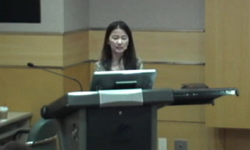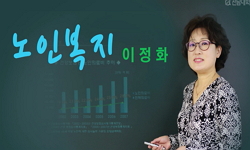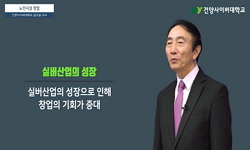본 연구는 성별에 따른 노년기 사회적 네트워크의 유형을 규명하고, 사회적 네트워크 유형이 우울증상과 어떠한 관련이 있는지 분석하였다. 분석을 위해 고령화연구패널조사(Korean Longitudinal...
http://chineseinput.net/에서 pinyin(병음)방식으로 중국어를 변환할 수 있습니다.
변환된 중국어를 복사하여 사용하시면 됩니다.
- 中文 을 입력하시려면 zhongwen을 입력하시고 space를누르시면됩니다.
- 北京 을 입력하시려면 beijing을 입력하시고 space를 누르시면 됩니다.
https://www.riss.kr/link?id=A107036397
- 저자
- 발행기관
- 학술지명
- 권호사항
-
발행연도
2020
-
작성언어
Korean
- 주제어
-
등재정보
KCI등재
-
자료형태
학술저널
-
수록면
185-210(26쪽)
-
KCI 피인용횟수
0
- DOI식별코드
- 제공처
-
0
상세조회 -
0
다운로드
부가정보
국문 초록 (Abstract)
본 연구는 성별에 따른 노년기 사회적 네트워크의 유형을 규명하고, 사회적 네트워크 유형이 우울증상과 어떠한 관련이 있는지 분석하였다. 분석을 위해 고령화연구패널조사(Korean Longitudinal Study of Ageing)를 사용하여, 6차 년도(2016년)에서 65세 이상 노인의 사회적 네트워크 유형이 7차 년도(2018년)의 우울증상에 어떠한 영향력을 갖는지 분석하였다(N=3,836). 사회적 네트워크 유형을 확인하기 위해 잠재계층분석(Latent Class Analysis)을 사용하였고, 도출된 사회적 네트워크 유형이 우울증상에 갖는 영향력을 분석하기 위해 다중회귀분석을 실시하였다. 분석결과 성별에 따라 상이한 잠재집단이 도출되었다. 여성에서는 제한-부부형(16.2%), 제한-자녀형(14.8%), 다양형(17.1%), 친구-활동형(52.0%)의 4개 잠재집단이 도출되었고, 남성에서는 제한-부부형(29.1%), 친구-활동형(27.5%), 다양형(43.4%)의 3개 잠재집단이 도출되었다. 사회적 네트워크 유형이 우울증상에 어떤 영향력을 갖는지 살펴본 결과에서도 성별 차이가 나타났는데, 여성에서는 제한-부부형에 비해 다양형과 친구-활동형에 속할수록 우울증상이 낮았지만, 남성에서는 사회적 네트워크 유형이 우울증상에 영향을 주지 않았다. 본 연구를 통해 성별에 따라 사회적 네트워크 유형과 우울에 대한 영향력이 다르다는 것을 실증적으로 확인하였고, 이는 각 성별 집단 내에서 가장 취약한 집단에 대한 심층적인 이해와 차별적인 접근이 필요함을 시사하는 결과이다.
다국어 초록 (Multilingual Abstract)
This study aimed (1) to identify gender-specific social network types among older adults, (2) to examine whether, and to what extent, these social network types influence their depressive symptoms. Data were obtained from the Korean Longitudinal Study...
This study aimed (1) to identify gender-specific social network types among older adults, (2) to examine whether, and to what extent, these social network types influence their depressive symptoms. Data were obtained from the Korean Longitudinal Study of Ageing. The sample was restricted to respondents over 65 years of age who participated both the 2016 and 2018 surveys (N=3,836). The social network types were derived by Latent Class Analysis. Multivariate regression analysis were conducted to examine the effects of social network type on depressive symptoms.
Among older women, four types were identified: Restricted-couple(16.2%), Restricted-children(14.8%), Diverse(17.1%), Friend-activity(52.0%). Among older men, Three types were found: Restricted-couple(29.1%), Diverse(43.4%), Friend-activity(27.5%). Among women in Diverse and Friend-activity types were more likely to have higher levels of depressive symptoms. Among older men, however, there were no effect of social network types on depressive symptoms. This study demonstrated there are gender differences in social network types and those effects on depressive symptoms. This study empirically confirmed that the influence of social network types and their effects on depression is different by gender. This result suggested that in-depth understanding and discriminatory approaches to the most vulnerable subgroups within each gender group are required.
목차 (Table of Contents)
- 국문초록
- I. 서론
- Ⅱ. 이론적 논의
- Ⅲ. 연구방법
- Ⅳ. 연구결과
- 국문초록
- I. 서론
- Ⅱ. 이론적 논의
- Ⅲ. 연구방법
- Ⅳ. 연구결과
- Ⅴ. 결론 및 제언
- 참고문헌
- Abstract
참고문헌 (Reference)
1 김혜영, "한국가족문화의 재고-친밀성의 부재와 허약한 가족관계" 2006 : 2006
2 임소영, "한국 노인의 사회관계망 유형과 건강상태의 관계: 남녀집단별 분석" 한국노인복지학회 (59) : 281-308, 2013
3 황남희, "한국 노년층의 여가활동 유형화 및 영향요인 분석" 한국보건사회연구원 34 (34): 37-69, 2014
4 강연욱, "치매환자들을 대상으로 한 K-MMSE의 타당도 연구" 15 : 300-307, 1997
5 강상경, "중·고령자 우울증 개선 관련 요인에 대한 탐색적 연구 - 고령자 패널 1․2차 데이터를 사용하여" 한국정신건강사회복지학회 40 (40): 145-174, 2012
6 이지현, "예비노인의 친구관계망 특성이 행복감에 미치는 영향: 성별 차이를 중심으로" 한국보건사회연구원 32 (32): 170-205, 2012
7 남기민, "여성독거노인들이 인지한 사회활동과 사회적 지지가 삶의 질에 미치는 영향 :우울과 죽음불안의 매개효과를 중심으로" 한국노인복지학회 (52) : 325-348, 2011
8 석재은, "여성독거노인과 남성독거노인의 관계자원이 삶의 만족도에 미치는 영향" 한국노인복지학회 71 (71): 321-349, 2016
9 한국여성정책연구원, "여성노인의 노후빈곤 현황 및 대응정책" 한국여성정책연구원 2013
10 한경혜, "성인남녀의 이혼 과정 각 단계에서의 성별차이" 한국가족관계학회 9 (9): 93-118, 2004
1 김혜영, "한국가족문화의 재고-친밀성의 부재와 허약한 가족관계" 2006 : 2006
2 임소영, "한국 노인의 사회관계망 유형과 건강상태의 관계: 남녀집단별 분석" 한국노인복지학회 (59) : 281-308, 2013
3 황남희, "한국 노년층의 여가활동 유형화 및 영향요인 분석" 한국보건사회연구원 34 (34): 37-69, 2014
4 강연욱, "치매환자들을 대상으로 한 K-MMSE의 타당도 연구" 15 : 300-307, 1997
5 강상경, "중·고령자 우울증 개선 관련 요인에 대한 탐색적 연구 - 고령자 패널 1․2차 데이터를 사용하여" 한국정신건강사회복지학회 40 (40): 145-174, 2012
6 이지현, "예비노인의 친구관계망 특성이 행복감에 미치는 영향: 성별 차이를 중심으로" 한국보건사회연구원 32 (32): 170-205, 2012
7 남기민, "여성독거노인들이 인지한 사회활동과 사회적 지지가 삶의 질에 미치는 영향 :우울과 죽음불안의 매개효과를 중심으로" 한국노인복지학회 (52) : 325-348, 2011
8 석재은, "여성독거노인과 남성독거노인의 관계자원이 삶의 만족도에 미치는 영향" 한국노인복지학회 71 (71): 321-349, 2016
9 한국여성정책연구원, "여성노인의 노후빈곤 현황 및 대응정책" 한국여성정책연구원 2013
10 한경혜, "성인남녀의 이혼 과정 각 단계에서의 성별차이" 한국가족관계학회 9 (9): 93-118, 2004
11 이정화, "대한민국 중년을 치밀하게 분석한 지금, 중년을 말할 때" 교문사 2012
12 김은정, "농촌 노인의 비공식적 사회관계망과의 사회적 지원과 우울성향 : 도시 노인과의 비교" 사회과학연구소 28 (28): 149-176, 2012
13 신용석, "노인의 자산수준이 삶의 만족도에 미치는 영향: 사회활동참여의 다중매개효과를 중심으로" 한국보건사회연구원 37 (37): 216-250, 2017
14 천의영, "노인의 사회 연결망 유형과 건강상태와의 관련성" 한국간호과학회 40 (40): 88-98, 2010
15 차승은, "노인의 결혼지위 점유에 따른 건강차이: 노년기 사회적 관계망의 매개효과를 중심으로" 한국노년학회 27 (27): 371-392, 2007
16 박소영, "노인의 건강 특성과 사회적 관계망이 우울 증상 수준에 미치는 영향: 성별 조절 효과를 중심으로" 한국보건사회연구원 38 (38): 154-190, 2018
17 통계청, "고령자 통계"
18 이민아, "결혼상태에 따른 노인의 우울도와 성차" 한국사회학회 44 (44): 32-62, 2010
19 Fiori, K. L., "The impact of social support networks on mental and physical health in the transition to older adulthood: A longitudinal, pattern-centered approach" 36 (36): 117-129, 2012
20 Litwin, H, "The association between social network relationships and depressive symptoms among older Americans: what matters most?" 23 (23): 930-940, 2011
21 Baltes, P. B., "The Berlin Aging Study: Aging from 70 to 100" Cambridge University Press 2001
22 Nylund-Gibson, K., "Ten Frequently Asked Questions About Latent Class Analysis" 4 (4): 440-461, 2018
23 Fiori, K. L., "Social network typologies and mental health among older adults" 61B (61B): 25-32, 2006
24 Park, S., "Social network types and well-being among South Korean older adults" 18 (18): 72-80, 2014
25 Ye, L., "Social network types and health among older adults in rural china:The mediating role of social support" 16 (16): 410-, 2019
26 Kim, Y. B., "Social network types and cognitive decline among older Korean adults: A longitudinal population-based study" 34 (34): 1845-1854, 2019
27 Fiori, K. L., "Social network types among older adults: a multidimensional approach" 62B (62B): 322-330, 2007
28 Litwin, H., "Social network type and subjective well-being in a national sample of older Americans" 51 (51): 379-388, 2011
29 Litwin, H, "Social network type and morale in old age" 41 (41): 516-524, 2001
30 Shiovitz-Ezra, S., "Social network type and health-related behaviors:Evidence from an American national survey" 75 : 901-904, 2012
31 Cheng, S., "Social Network Types and Subjective Well-being in Chinese Older Adults" 64B (64B): 713-722, 2009
32 Fiori, K. L., "Profiles of social relations among older adults: a cross-cultural approach" 28 (28): 203-231, 2008
33 Litwin, H., "Network type and mortality risk in later life" 46 : 735-743, 2006
34 Kim, B., "Longitudinal changes in social networks, health and wellbeing among older Koreans" 36 : 1915-1936, 2016
35 Kahn, R. L., "Life-span development and behavior Vol. 3" Academic Press 253-286, 1980
36 Fuller-Iglesias, H., "Life-course perspectives on late life health inequalities" Springer 2010
37 Glymour, M. M., "Life-course perspectives on late life health inequalities" Springer 2010
38 Antonucci, T. C., "Impact of Positive and Negative Aspects of Marital Relationships and Friendships on Well-Being of Older Adults" 5 (5): 68-75, 2001
39 Antonucci, T. C., "Handbook of the Psychology of Aging" Academic Press 427-453, 2001
40 Berkman, L. F., "Handbook of Aging and the Social Sciences" Elsevier 337-351, 2011
41 Lee, H., "Gender differences in the trajectory classes of depressive symptoms in Korean older adults" 22 (22): 1162-1169, 2018
42 Zhan, H. J., "Gender and elder care in China: The influence of filial piety and structural constraints" 17 (17): 209-229, 2003
43 Berkman, L. F., "From social integration to health: Durkheim in the new millennium" 51 : 843-857, 2000
44 Warren, J. R., "Do different methods for modeling age-graded trajectories yield consistent and valid results?" 120 (120): 1809-1856, 2015
45 Nylund, K. L., "Deciding on the number of classes in latent class analysis and growth mixture modeling: A Monte Carlo simulation study" 14 (14): 535-569, 2007
46 Park, N. S., "Associations of a Social Network Typology With Physical and Mental Health Risks Among Older Adults in South Korea" 22 (22): 631-638, 2018
47 Jung, T., "An introduction to latent class growth analysis and growth mixture modeling" 2 (2): 302-317, 2008
48 한국고용정보원, "2020년 고령화 연구패널 이용자 가이드(User’s Guide)"
49 보건복지부, "2017년도 노인실태조사" 보건복지부 2017
동일학술지(권/호) 다른 논문
-
이주노동자 유입에 대한 세대 간 인식 차이 탐색−수도권 거주 20대와 50대 비교를 중심으로
- 경성대학교 사회과학연구소
- 허종호(Heo, Jongho)
- 2020
- KCI등재
-
- 경성대학교 사회과학연구소
- 김미숙(Meesook Kim)
- 2020
- KCI등재
-
청소년의 차별경험이 공동체 의식에 미치는 영향 −청소년활동 참여의 조절효과를 중심으로
- 경성대학교 사회과학연구소
- 최선아(Choi, Sun Ah)
- 2020
- KCI등재
-
지역의 생활환경에 대한 인식이 삶의 질에 미치는 영향−고양시 사례를 중심으로
- 경성대학교 사회과학연구소
- 임연옥(Lim, Yeon Ok)
- 2020
- KCI등재
분석정보
인용정보 인용지수 설명보기
학술지 이력
| 연월일 | 이력구분 | 이력상세 | 등재구분 |
|---|---|---|---|
| 2026 | 평가예정 | 재인증평가 신청대상 (재인증) | |
| 2020-01-01 | 평가 | 등재학술지 유지 (재인증) |  |
| 2017-01-01 | 평가 | 등재학술지 선정 (계속평가) |  |
| 2016-12-01 | 평가 | 등재후보로 하락 (계속평가) |  |
| 2012-01-01 | 평가 | 등재학술지 유지 (등재유지) |  |
| 2009-01-01 | 평가 | 등재학술지 선정 (등재후보2차) |  |
| 2008-01-01 | 평가 | 등재후보 1차 PASS (등재후보1차) |  |
| 2007-01-01 | 평가 | 등재후보학술지 유지 (등재후보1차) |  |
| 2005-01-01 | 평가 | 등재후보학술지 선정 (신규평가) |  |
학술지 인용정보
| 기준연도 | WOS-KCI 통합IF(2년) | KCIF(2년) | KCIF(3년) |
|---|---|---|---|
| 2016 | 1.32 | 1.32 | 1.56 |
| KCIF(4년) | KCIF(5년) | 중심성지수(3년) | 즉시성지수 |
| 1.52 | 1.52 | 2.001 | 0.29 |





 KCI
KCI DBpia
DBpia






